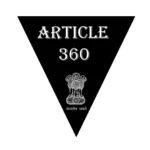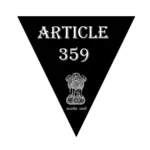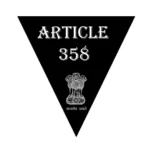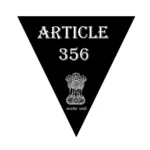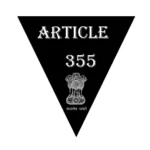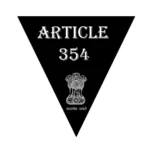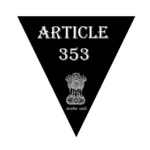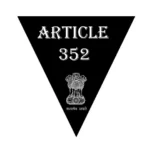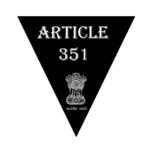As we talked about in previous article, There are four types of derivatives – forward derivatives, Future Derivatives, Option Derivatives and Swap Derivatives.
In this article, we will discuss Swap Derivatives in a simple and easy way, and understand its various aspects. So read this article till the end.
Note – If you want to understand the basics of share market from zero level then you should start with Part 1. – Share Market and Related
| What is Derivatives?
Any instrument that has no value of its own, but derives its value from something else. They are called derivatives .
The thing on which its value depends is called the underlying asset. As the value of paneer depends on milk, so here milk is the underlying asset of paneer.
There are four types of Derivatives – Forward, Future, Option and Swap. In this article we will understand Swap Derivatives:
| What is Swap Derivatives?
Swap simply means a derivatives contract where two parties exchange money, liabilities or commodities etc. Let us understand swap derivatives with an example.
| Swap Derivatives Example
Suppose you have a kerosene-burning lamp in your house, by chance the power went out that night and you go to light that lamp but you come to know that you do not have only kerosene but you have petrol.
On the other hand, you have a neighbor who has just got an emergency, he will have to go to the city immediately. But when he starts his car, he comes to know that the petrol is about to run out. He has kerosene but no petrol.
In such a situation, would it not be good that both of you should exchange your belongings. Because by this both will get the things they need. This type of swap is called a swap.
⚫ On this the question may come in your mind that how will you know that your neighbor has kerosene and how will your neighbor know that you have petrol. So here comes the role of the mediator. That is, in the middle of this swap, there is a separate arbitrator agency which takes its commission and gets this swap done.
Remember that this is not an agency exchange. That is, swap is not traded in the exchange and generally only companies, businessmen etc. are involved in swap, not common man.
⚫ This is a type of commodity swap or product swap, which you just read above example. However, in commodity swaps, usually crude oil and livestock etc. are swapped to avoid market price volatility. Apart from this, there are some other swaps, let’s know that too.
|Types of Swap Derivatives
| Currency swap
Currency swaps are usually used by the businessmen or governments of two countries. What is its function, let us understand it with an example.
⚫ Suppose there is an Indian company which has to set up its business in America and there is an American company which has to set up business in India.
But the problem is that when an Indian company wants to take a loan in America, it has to pay very high interest rate. Let’s say it is 10 percent. But at the same time, if he takes a loan in India, then he will have to pay only 7 percent interest.
if he takes a loan in India, then he will have to convert that rupee into dollar and there will be many other problems too.
⚫ Now talk about that American company which wants to set up business in India. If he takes a loan in India, then he will have to pay an interest of 10 percent.
But if he takes a loan in America, then he will have to pay only 7 percent interest. But he also has the same problem as the company of India. In such a situation, the concept of currency swap comes.
⚫ In this it will happen that the American company will take a loan in its country at 7% and give it to the Indian company.
This will make his work, similarly, the Indian company will take a loan from India at 7% and give it to the American company and thus both will get the loan cheaper and both will get the job done.
Remember one thing here that there is definitely an agency for mediation here. Usually this is a bank.
| Interest rate swap
Talking about interest rate swap, something similar happens here as well. Suppose a company has taken a loan from a bank at a fixed interest rate. This means that until he does not pay the full amount, he will have to pay the money at a fixed rate.
Similarly, there is another company which has taken loan on floating rate. This means that its interest rate can fluctuate according to the policy of the bank.
For example, if the Reserve Bank reduces the repo rate, then its bank interest rate will also decrease and if it is increased then it will increase.
⚫ Now suppose that the company with the fixed rate feels that the fixed interest rate it is paying is too high whereas the floating interest rate which is presently is too low and is expected to be even lower in future.
Similarly, a company with a floating rate thinks that the floating interest rate will increase significantly in the coming time, so if a fixed interest rate is found, then at least there will be a guarantee that the interest will increase or decrease but we have to pay at just one rate.
This is called Speculation, that is, both are guessing in their own way that this will happen.
⚫ What will happen now, only the future will tell. But for now, if both the companies want, they can swap the interest rate swap. A company that has a fixed interest rate will transfer it to a company with a floating interest rate.
Similarly, a company with a floating interest rate will transfer its interest rate to a fixed one. This is the interest rate swap.
| Debt swap
This is more or less the same way. Suppose you have taken a bond of a company and now the condition of that company has become such that it is not able to pay the interest rate, in such a situation, it can do that the debt holder will give equity in his company. That is, the bond was swapped with equity. This is the basic concept of Debt swap.
| Total return swap
This basically means that suppose you have ownership in a company. You are getting income from it but there are ups and downs in it.
So suppose someone tells you that I will give you a fixed interest rate, in return you give me that asset i.e. the asset from which you are getting floating income.
So you will give that asset and whatever floating income you are getting and it will give you a fixed interest rate in return. This is the total return swap.
| Credit Default Swap or CDS
Suppose SBI has given a loan to a company. Now if the condition of the company becomes bad, then all the money of SBI will be drowned.
To avoid this, SBI gets an insurance done that if that company is unable to pay the bank’s money, then the insurance company will pay the bank’s money.
But instead SBI will have to pay a certain insurance premium. As in any other insurance. This is the basic of Credit Default Swap.
So overall this was Swap derivatives, hope you understand. If you have patiently read all the articles in the Basics of Share Market series and all the articles on Derivatives, then you really deserve thanks.
⚫⚫⚫
| Share Market Basic Concept Series (BCS)
FAQS ON COMMODITY DERIVATIVES
Commodity exchange in India
https://www.sebi.gov.in/
Swap Definition – Investopedia
https://cleartax.in/g/terms/swap

![Capital market Concept Explained [BCS 4/15] Eng.](https://wonderhindi.com/wp-content/uploads/2023/07/coin-wooden-table_1150-17732-440x264.webp)
![Derivatives in Share Market Concept [BCS 10/15] Eng.](https://wonderhindi.com/wp-content/uploads/2023/07/double-exposure-businessman-using-tablet-with-cityscape-financial-graph-blurred-buildi_1258-84463-440x264.webp)
![Option Derivatives Concept Explain [BCS 13/15] Eng.](https://wonderhindi.com/wp-content/uploads/2023/07/bankruptcy-concept-flat-design_52683-35885-440x264.webp)
![Bond Market Concept Explained [BCS 9/15] English](https://wonderhindi.com/wp-content/uploads/2023/07/investing-bonds-isometric-landing-page-dollar-coins-fall-jar-with-investment-documents-charts-around-invest-fund-increase-money-finance-business_33099-2507-440x264.webp)
